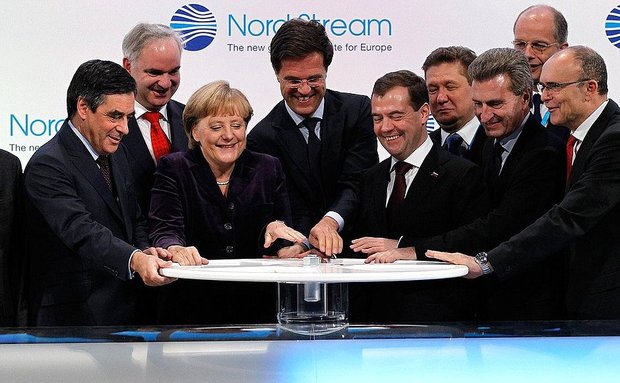Gazprom's pricing strategy to determine Russian stake in the EU gas supply
A research by two fundamental European institutions has mapped out a long-term gas supply strategy for the European Union. Russia is likely to stay the biggest player, but Europe is going to increase its LNG imports. Pricing strategy will be crucial for choosing the suppliers.
European Union gas supply mix is to change fundamentally, says Phys.org citing the joint research study by Energy Research & Scenarios, Cologne and the European Centre for Energy and Resource Security (EUCERS), at King's College London. The research examines how the EU can diversify gas supplies in the next 20 years and outlines several potential scenarios.
According to the report, there are two main factors that put the EU in a strong strategic position. The external factor is the availability of alternative gas sources, including Liquefied Natural Gas (LNG). Internally, the EU has good opportunities for market integration. For example, some infrastructure development and investments can help to connect its highly liquid north west European gas market with markets in South and Eastern Europe.
In general, Europe's internal gas production will decline, and the resulting shortage will be likely substituted by Russian pipeline supplies. Russia will remain a major source of gas for the EU, but the stake of LNG is projected to more than double until 2035. The pricing strategy is identified as crucial for choosing the EU suppliers, so if Russian Gazprom applies an oligopolistic pricing strategy it can also increase the LNG imports. Likewise, it can potentially attract the inflow of new gas from the Southern Gas Corridor as well. But the expansion of gas imports through the Southern Corridor depends on Turkey's political position, both at home and in its foreign relations.

'The future of the EU's gas diversification depends on political factors that may be partly exogenous to Europe's policy-makers, specifically policy decision making in Russia and Turkey, two countries critical for EU's gas future. A major project such as Nord Stream 2 may proceed under the assumption that the EU and Russia are not engaged in a political crisis that escalates further,' considers Dr Adnan Vatansever of EUCERS.
In case of success, the Nord Stream expansion would make Germany the main transit country of Russian gas and the major gas hub in Europe. It is also supposed to build a new interconnection capacity linking Germany, the Czech Republic and Slovakia. This would enable increased supplies of Russian and non-Russian gas to Eastern European countries. However, the additional capacity is needed only in a competitive pricing strategy scenario. In the other case, the route would be highly underutilized and, thus, the construction costs would be unreasonable.